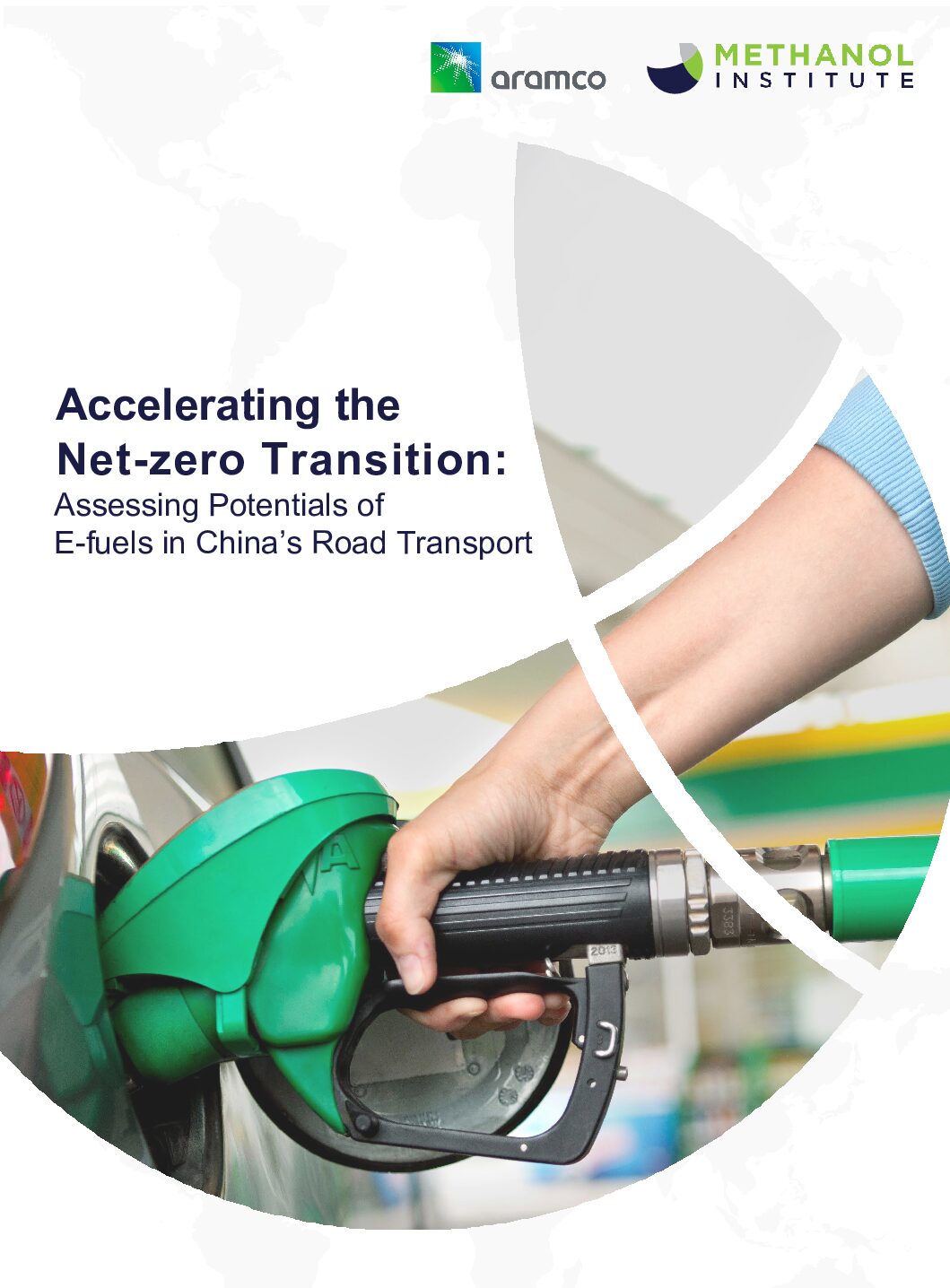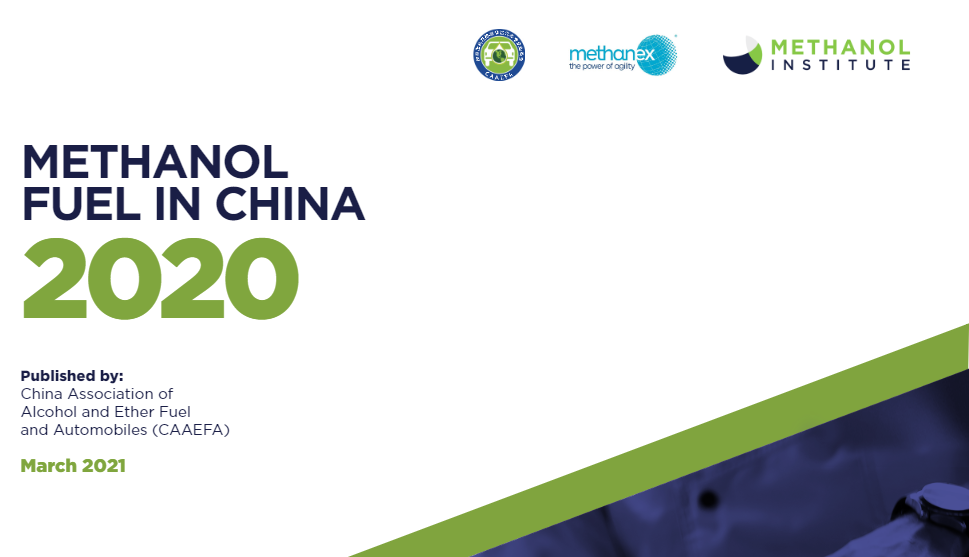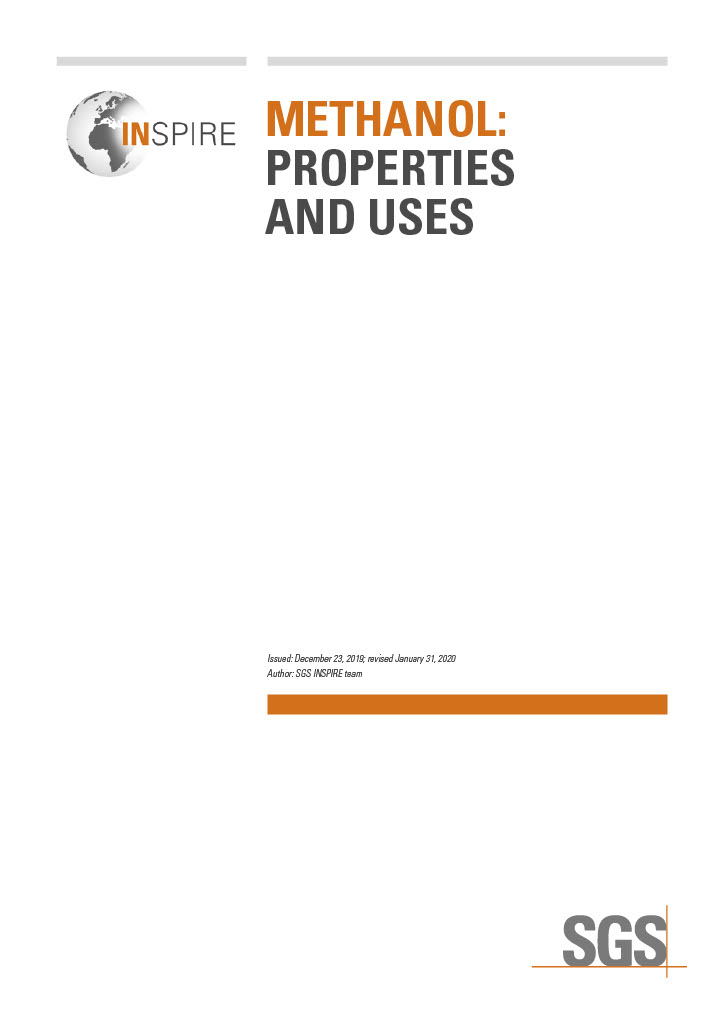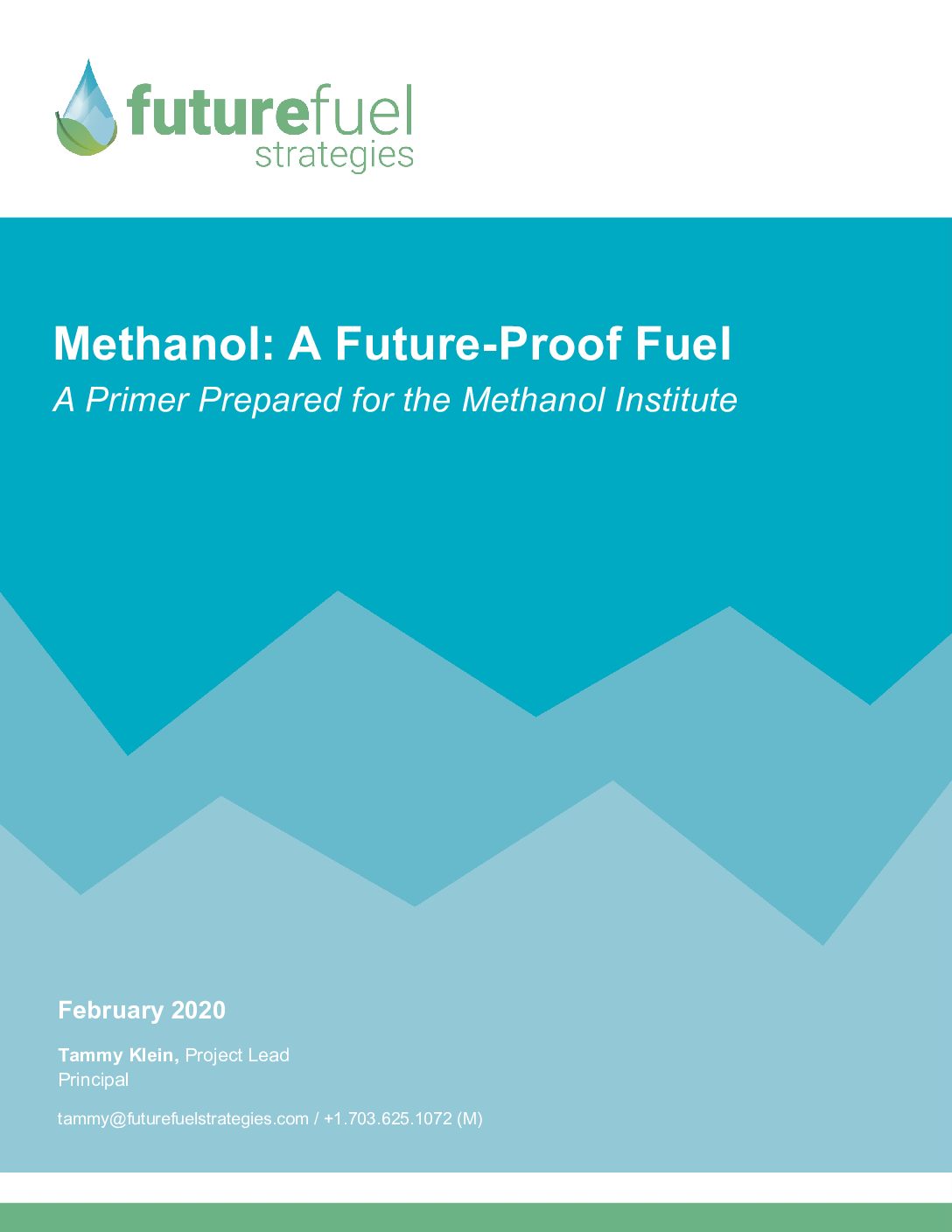This Methanol Institute and Aramco report showcases the decarbonization potential of low-carbon e-fuels in China’s road transport, supported by member companies including Geely Holding Group and OCI Global.
This 3E (environment, economy and efficiency) study makes the case for e-fuels (e-hydrogen, e-methanol and e-gasoline via methanol to gasoline (MTG) technology) to accelerate the transition for China’s road transport sector. The authors show that e-fuels applications in advanced powertrains such as hydrogen fuel cells electric vehicles, M100 and gasoline hybrid vehicles) could achieve lifecycle GHG emissions as low as battery electric vehicles fully charged with renewable electricity.
While the current production cost of e-fuels are approximately 2-3 times more than that of their fossil-based counterparts, China envisions overcoming this barrier – namely, scale and cost competitiveness by leveraging its abundant renewable resources, advanced manufacturing capabilities, and its mature energy and chemical value chains. Anticipated advancements suggest a potential halving of e-fuels production costs by 2030 – making the cost of e-methanol, for example, only 30% higher than China’s coal-based methanol. The confluence of electrified powertrains and e-fuels positions China on an accelerated trajectory toward sustainable, low-carbon mobility.
Methanol Fuel in China Report
The Methanol Fuel in China report was the outcome of a collaborative effort between MI, Methanex, and China Association of Alcohol and Ether Fuels and Automobiles (CAAEFA) to shed light on the intricacies of the methanol fuel market in China, which has to date remained primarily opaque to observers. The report’s authors gathered data through a survey of more than four hundred Chinese companies that were either manufacturers or users of methanol applications in China. The sampling pool for the survey was representative of the whole supply chain from production to consumption of methanol, including the technologies that enabled its consumption as a fuel. This allowed the authors to get a holistic insight into the entire value chain of different methanol applications. In 2019, China’s total consumption of methanol fuel reached nearly 6 million metric tons (2 billion gallons or 7.5 billion liters), accounting for 7% of total methanol consumption in China, the world’s largest methanol market.
Methanol Institute Releases Two New Reports On Methanol Fuel
SGS Inspire has prepared a report for the Methanol Institute titled “Methanol: Properties and Uses,” providing an explanation of the main physical and chemical properties of methanol and how these properties affect the different types of existing internal combustion engines in the market.





